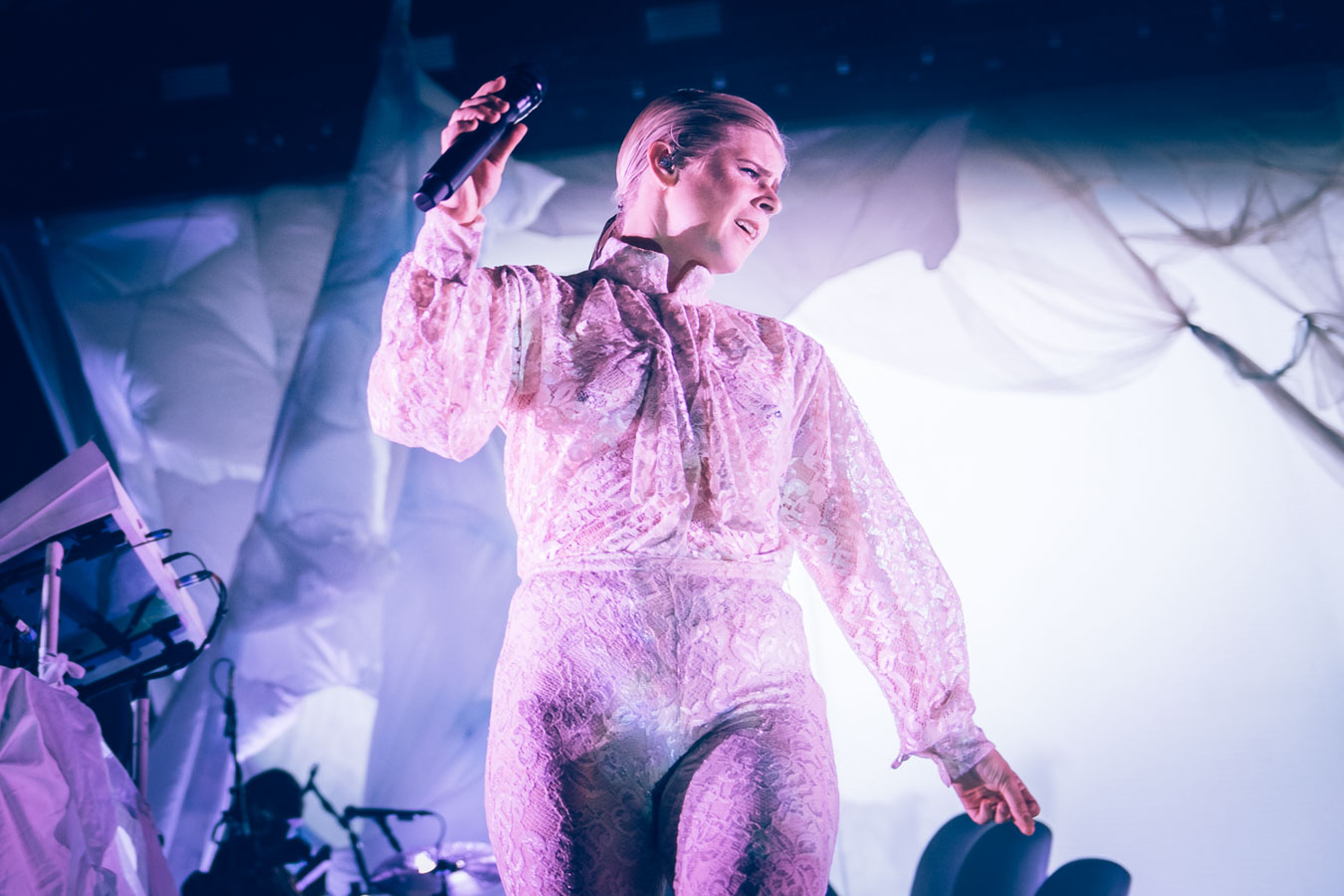Even though it only draws a fraction of the crowd (19,000 at capacity) that patronizes Lollapalooza or even the Chosen Few Picnic, Pitchfork Music Festival seems to get more attention than any other music fest in town. This year’s edition was no different, with elder statesmen sharing stages with burgeoning artists. Here were some of the winners and bummers from the weekend.
Low: The half-hour apocalyptic downpour
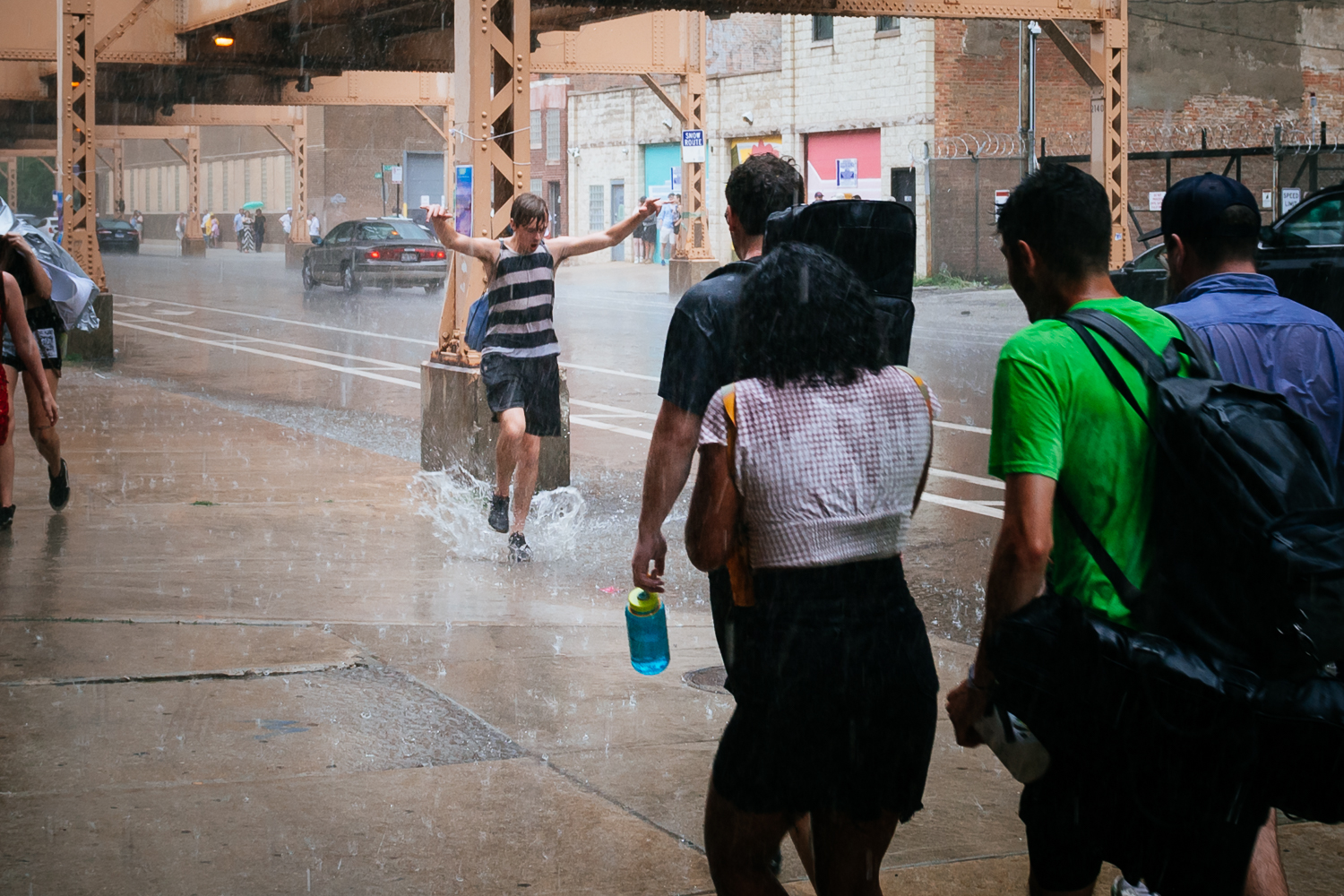 Photo: Cousin Daniel
Photo: Cousin DanielClouds loomed as Parquet Courts took the stage Saturday afternoon, growing more and more foreboding as the New York postpunkers admirably played through it. Then, suddenly, the festival was evacuated, and everybody ran out and hunkered down. Fast-forward to an hour later, and the skies were clearer than they’d be for the rest of the weekend.
High: Jamming
Whether it was the Isley Brothers ripping through an extended funk-rock rendition of “Fight The Power” or Julia Holter’s languorous chamber-folk set, this year’s fest was defined by the performers’ willingness to allow tracks from their back catalog to sprawl, filling both physical and emotional space with unremitting repetition and riffage. OG indie-rock jamster Kurt Vile’s set was canceled due to the Saturday downpour, but no matter: There were plenty of stoner-friendly rhythms to go around throughout the weekend.
Low: Sound mixing on Friday
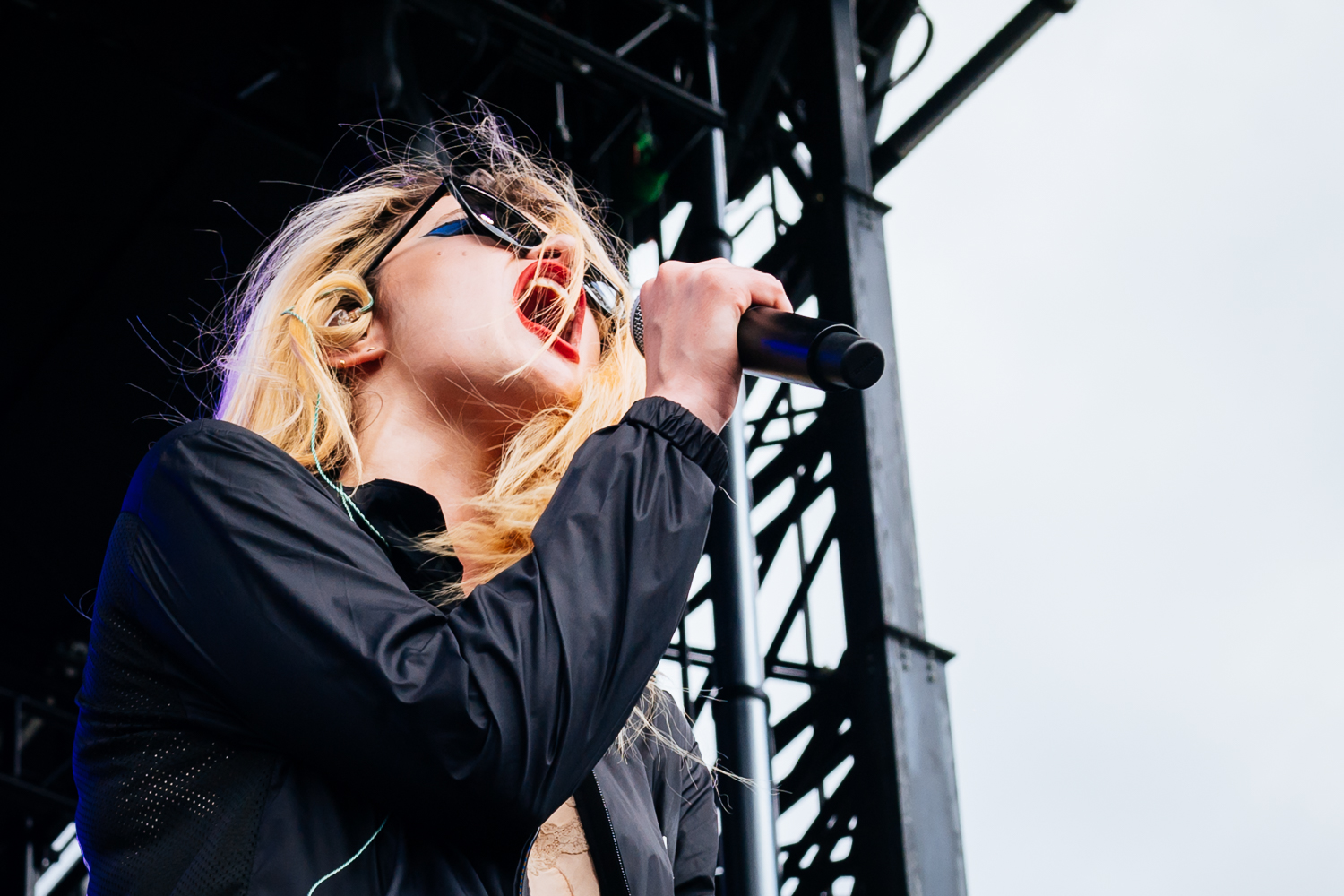
As one of the first acts for the entire festival, Rico Nasty (and later, Sky Ferreira) bore the brunt of the perennial opening-day festival problem. With Rico, overblown bass and tinny treble at first actually heightened the set, helpfully complementing her aggressive posturing. But as her set trailed off, the low end completely collapsed in on itself, obscuring any rapping or, for that matter, beats.
Sky, on the other hand, executed a near-pristine set that went over better than it seems she even realized. Dealing with some earpiece issues, she lamented that “everything that could’ve gone wrong has so far,” to which this writer wanted to respond, “I almost cried and you’re killing it, don’t even worry.”
High: Vibey guitar boys
Back-to-back indie vibing dominated Sunday afternoon, when Amen Dunes immediately preceded hometown heartthrobs Whitney. Both artists leaned into crooner intimacy, but in different directions: Amen Dunes’s Damon McMahon warps his vocals into strange, unnatural shapes with mesmerizing precision, while Whitney's indelibly falsettoed Julien Ehrlich challenges listeners to embrace the rhythmic peculiarity of having a drummer-vocalist.
Neither artist was out to cause a ruckus, and neither made one, but that was never the point. Rather, taken side-by-side, their respective takes on hazy, slightly drugged-out folk-pop simply became more striking.
High: The vets
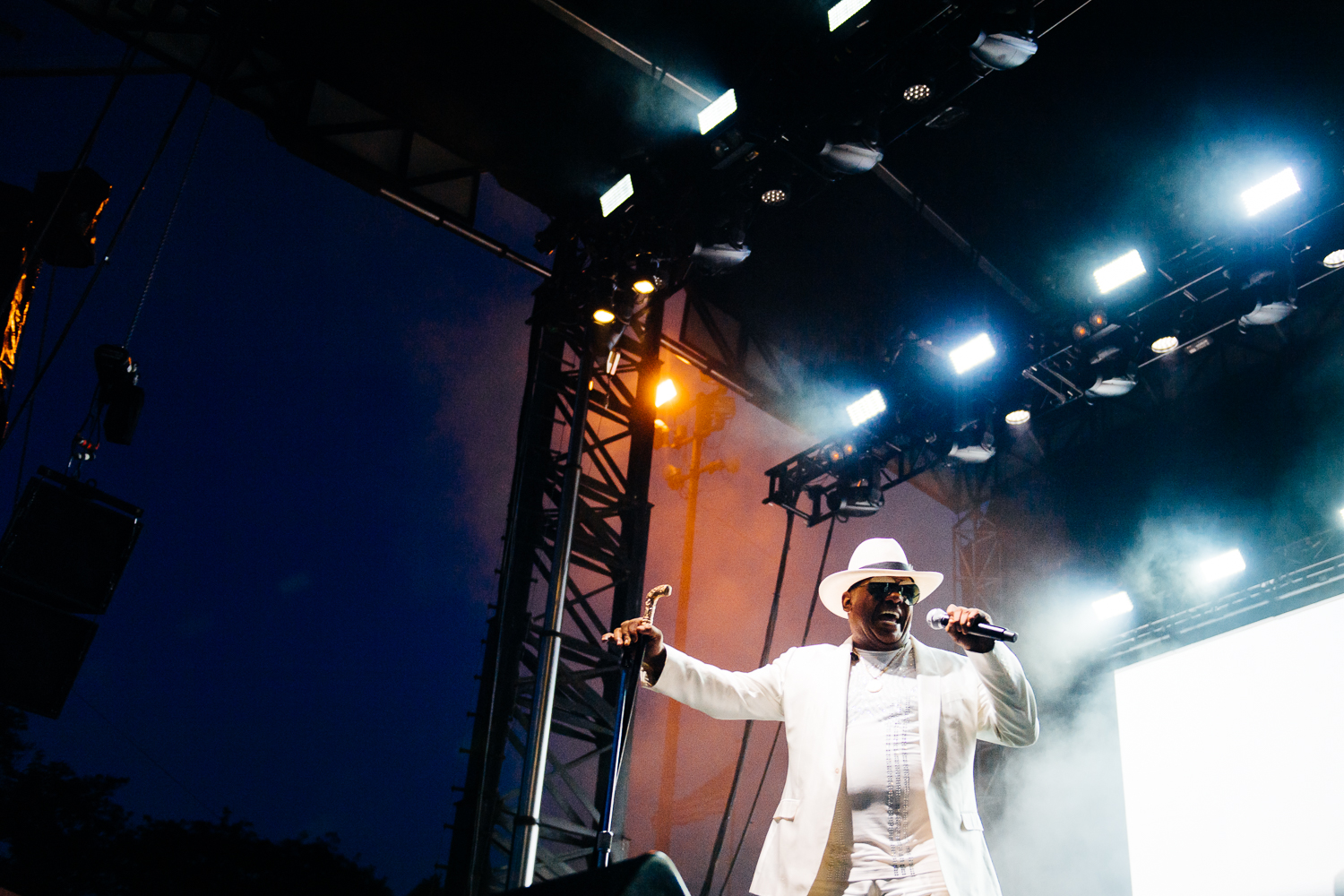
While plenty of emerging artists made their mark over the course of the weekend, some of the most indelible sets came from legacy artists reasserting their dominance. On Saturday evening, Stereolab’s radiant krautrock-lounge hybrid greeted attendees easing out of their rainstorm hiding spots, somehow recentering the festival’s vibe mere minutes after reopening. A pitch-perfect Belle & Sebastian set once again coronated frontman Stuart Murdoch as the ultimate sweetie, and the Isley Brothers showed the youngsters how it’s done with a set that was one-third Hendrix, one-third slow-jam master class, and one-third history lesson (assuming most audience members didn’t know that the Isleys directly inspired some of their favorite hip-hop songs).
Low: The Chase Sapphire Lounge
Every story needs its villain, and Pitchfork Fest found one in this corporate lounge, its logo staring out toward the Book Fort and record fair like the Eye of Sauron. It will forever live in infamy for its unwillingness to house the wet and needy, but the true legacy of the Chase Sapphire Lounge is its mystery: Why does it look super chill inside, but its exterior resembles a janky box? Was it true that you could just go in if you had a handheld Chase Sapphire Lounge fan? We may never know the answers to these questions, but the lounge's existence reaffirms the wretched compromise of dope music festivals — there’s always going to be some weird #sponcon that you hate but can’t stop looking at.
High: Low
After last year’s Double Negative rocketed them back into critics’ best-of lists, Low’s status as the Midwest’s best-kept live secret was reaffirmed. The undeniable highlight of Friday — and another peak jam moment — was the band’s rendition of “Do You Know How To Waltz?” in its 14-minute noise-drone entirety. (I’ve also begun seeding the important information that lead male vocalist Alan Sparhawk is extremely hot. Please pass it on if you get a chance.)
The Lowest: No really, everything about the weather
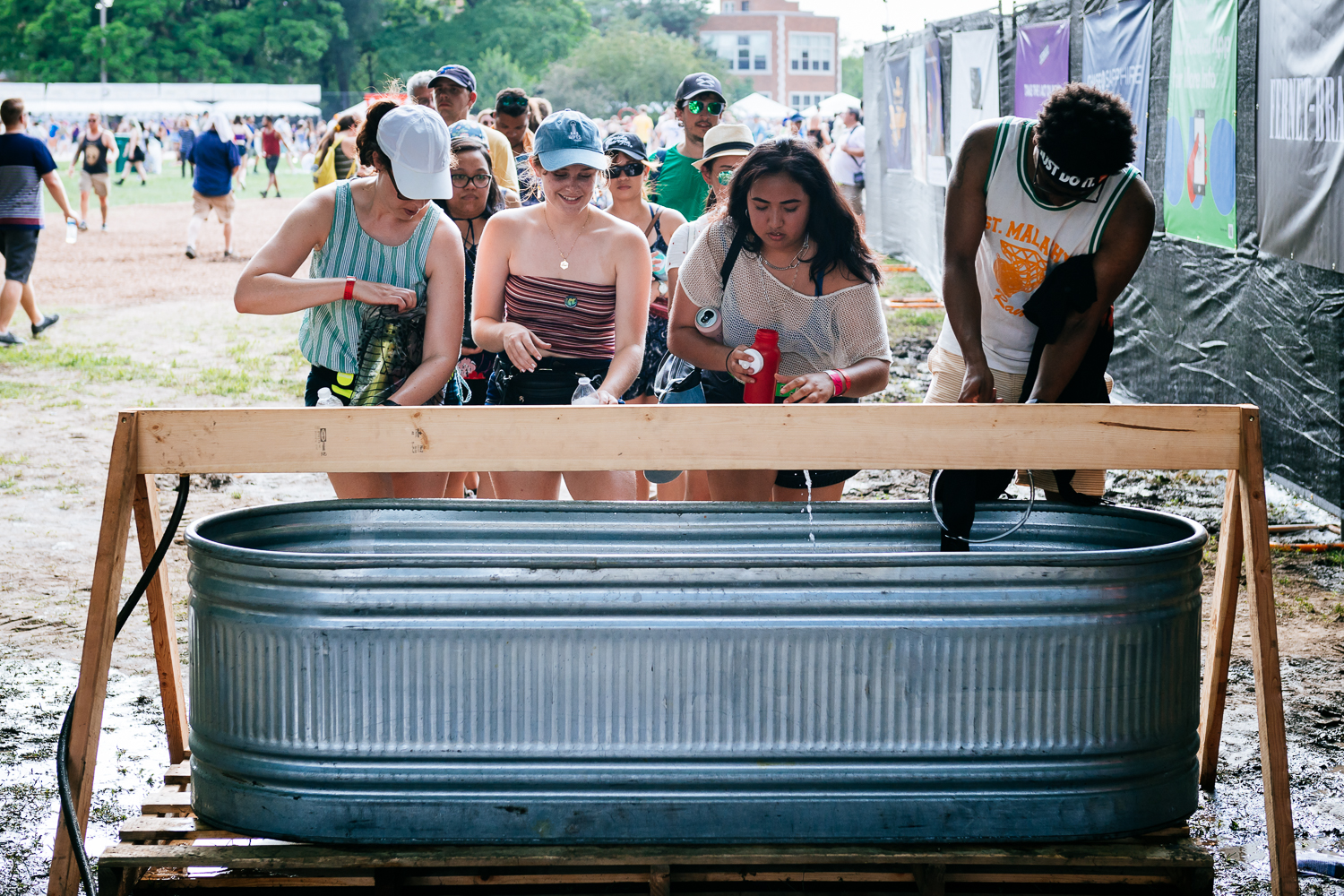 Photo: Cousin Daniel
Photo: Cousin DanielEven excluding the brief mini-cancellation on Saturday, the chaotic weather knocked this year's festival completely off balance: Triple-digit temperatures on Friday, a second rainfall on Sunday that eliminated Dreezy’s opening-day set, and mud that just wouldn’t get less … muddy.
The Highest: Robyn
This headlining show was a flex of restraint: The Swedish pop star has reached a point in her career that she can afford to delay a hook here, let a deep house beat go a bit longer there, and forego some classic tracks entirely. What might have at first seemed like simple reticence (or stubborn commitment to mostly playing tracks from last year’s more subdued Honey) eventually took shape as a Boiler Room-style mix set, with seamless transitions and taut bass.
After playing Body Talk crowd pleasers “Dancing On My Own” and “Call Your Girlfriend,” Robyn capped things off with some short and sweet words for the festival's host town: “I just wanted to say that the music I grew up to was born in this city.” She then bid it farewell through “With Every Heartbeat” — all hook, all fist-pump, a weekend's worth of pent-up anxiety channeled into defiant steadiness. And just like that, another Pitchfork was over, and everyone walked out into Chicago.



